14 start with O start with O
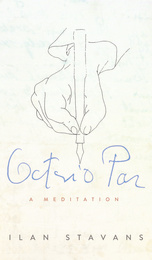
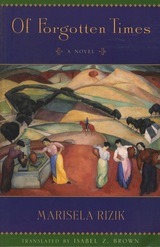

José Kozer is one of the most influential contemporary Cuban poets working today. A key figure in the neobaroque movement within contemporary Latin American poetry, he is one of only three Cubans to ever win the Pablo Neruda Prize given by the Neruda Foundation in Chile. He is the author of close to ninety books, including Este judío de números y letras, Bajo este cien, La garza sin sombras, Carece de causa, and Y del esparto la invariabilidad. Kozer is also noteworthy as a key poet of the Cuban diaspora, having left Cuba in 1960 and residing ever since in the United States.
Of Such a Nature/Índole is a bilingual edition translated into English by Peter Boyle. In addition, Boyle provides an extensive introduction placing Kozer’s work in a critical context.
The Spanish word “índole” can be translated as: “a type,” “a sort,” or “that sort of thing.” The title, Índole, therefore suggests that the poems gathered in this collection, are all instances of specific types of situations, things, or experiences. Kozer has gathered a collection of poems about everyday life—cleaning one’s dentures, a woman leaning over a bowl of oatmeal, a salamander glimpsed while eating breakfast—but always with death not far away.
Of Such a Nature/Índole is a remarkable collection of poems published in Cuba in 2012, covering such materials as Kozer’s Jewish heritage, his Cuban childhood and ongoing connection to the Island, Buddhist and East Asian traditions of spiritual practice, his everyday life in Florida with Guadalupe, ageing, illness, and the shadow of death. Irony and humor are there as well, and to read these poems is to be in the presence of the full seriousness of poetry and its playfulness, its ability to undercut all pretensions.
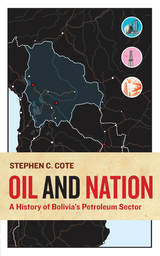
The book advances chronologically from Bolivia’s earliest petroleum pioneers in the nineteenth century until the present, inserting oil into historical debates about Bolivian ethnic, racial, and environmental issues, and within development strategies by different administrations. While Bolivia is best known for its tin mining, Oil and Nation makes the case that nationalist reformers viewed hydrocarbons and the state oil company as a way to modernize the country away from the tin monoculture and its powerful backers and toward an oil-powered future.

Aflame with desire, the eye conjures, dreams, invents itself, sees what it wants. The eye sees what it is able to see.
Ojo en celo / Eye in Heat brings into sharp relief the limits of our gaze. It shows us what it is to escape the mirror and move beyond mirages. Margarita Pintado Burgos invites us to ponder the impasse while showing us ways to see better, to break the habit of lying, and to confront images along with language.
With devastating clarity, Pintado Burgos’s poems, presented in both Spanish and English, give voice to the world within and beyond sight: the plants, the trees, the birds, the ocean waves, the fruit forgotten in the kitchen, the house’s furniture. Light takes on new dimensions to expose, manipulate, destroy, and nourish. Alejandra Quintana Arocho’s sensitive English translation renders the stark force of these poems without smoothing over the language of the original.
This collection is for anyone who has felt the weight of beauty that remains hidden. It is for those who have left behind a mother, a father, a country. It is for those who know that there is no way out of the poem, for those who have had to live off a house of words and need that house to be as real as possible. Pintado Burgos writes as a woman, exile, daughter, sister, lover, and artist empowered by the restorative potential of the creative phenomenon.
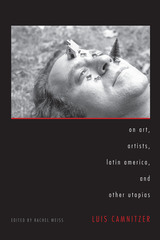
Artist, educator, curator, and critic Luis Camnitzer has been writing about contemporary art ever since he left his native Uruguay in 1964 for a fellowship in New York City. As a transplant from the "periphery" to the "center," Camnitzer has had to confront fundamental questions about making art in the Americas, asking himself and others: What is "Latin American art"? How does it relate (if it does) to art created in the centers of New York and Europe? What is the role of the artist in exile? Writing about issues of such personal, cultural, and indeed political import has long been an integral part of Camnitzer's artistic project, a way of developing an idiosyncratic art history in which to work out his own place in the picture.
This volume gathers Camnitzer's most thought-provoking essays—"texts written to make something happen," in the words of volume editor Rachel Weiss. They elaborate themes that appear persistently throughout Camnitzer's work: art world systems versus an art of commitment; artistic genealogies and how they are consecrated; and, most insistently, the possibilities for artistic agency. The theme of "translation" informs the texts in the first part of the book, with Camnitzer asking such questions as "What is Latin America, and who asks the question? Who is the artist, there and here?" The texts in the second section are more historically than geographically oriented, exploring little-known moments, works, and events that compose the legacy that Camnitzer draws on and offers to his readers.

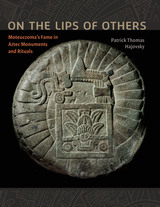
Moteuczoma, the last king who ruled the Aztec Empire, was rarely seen or heard by his subjects, yet his presence was felt throughout the capital city of Tenochtitlan, where his deeds were recorded in hieroglyphic inscriptions on monuments and his command was expressed in highly refined ritual performances. What did Moteuczoma’s “fame” mean in the Aztec world? How was it created and maintained? In this innovative study, Patrick Hajovsky investigates the king’s inscribed and spoken name, showing how it distinguished his aura from those of his constituencies, especially other Aztec nobles, warriors, and merchants, who also vied for their own grandeur and fame. While Tenochtitlan reached its greatest size and complexity under Moteuczoma, the “Great Speaker” innovated upon fame by tying his very name to the Aztec royal office.
As Moteuczoma’s fame transcends Aztec visual and oral culture, Hajovsky brings together a vast body of evidence, including Nahuatl language and poetry, indigenous pictorial manuscripts and written narratives, and archaeological and sculptural artifacts. The kaleidoscopic assortment of sources casts Moteuczoma as a divine king who, while inheriting the fame of past rulers, saw his own reputation become entwined with imperial politics, ideological narratives, and eternal gods. Hajovsky also reflects on posthumous narratives about Moteuczoma, which created a very different sense of his fame as a conquered subject. These contrasting aspects of fame offer important new insights into the politics of personhood and portraiture across Aztec and colonial-period sources.
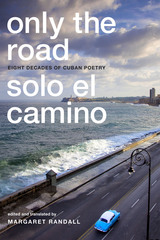
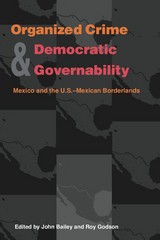
The United States–Mexico border zone is one of the busiest and most dangerous in the world. NAFTA and rapid industrialization on the Mexican side have brought trade, travel, migration, and consequently, organized crime and corruption to the region on an unprecedented scale. Until recently, crime at the border was viewed as a local law enforcement problem with drug trafficking—a matter of “beefing” up police and “hardening” the border. At the turn of the century, that limited perception has changed.
The range of criminal activity at the border now extends beyond drugs to include smuggling of arms, people, vehicles, financial instruments, environmentally dangerous substances, endangered species, and archeological objects. Such widespread trafficking involves complex, high-level criminal-political alliances that local lawenforcement alone can’t address. Researchers of the region, as well as officials from both capitals, now see the border as a set of systemic problems that threaten the economic, political, and social health of their countries as a whole.
Organized Crime and Democratic Governability brings together scholars and specialists, including current and former government officials, from both sides of the border to trace the history and define the reality of this situation. Their diverse perspectives place the issue of organized crime in historical, political, economic, and cultural contexts unattainable by single-author studies. Contributors examine broad issues related to the political systems of both countries, as well as the specific actors—crime gangs, government officials, prosecutors, police, and the military—involved in the ongoing drama of the border. Editors Bailey and Godson provide an interpretive frame, a “continuum of governability,” that will guide researchers and policymakers toward defining goals and solutions to the complex problem that, along with a border, the United States and Mexico now share.
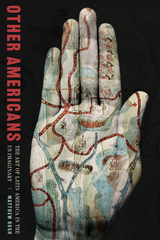
Grounded in perspectives of affect theory, Other Americans examines the writings of Roberto Bolaño and Daniel Alarcón; films by Alfonso Cuarón, Claudia Llosa, Matt Piedmont, and Joel and Ethan Coen; as well as the Netflix serials Narcos and El marginal. These widely consumed works about Latin America—equally balanced between narratives produced in the United States and in the region itself—are laden with fear, anxiety, and shame, which has an impact that exceeds the experience of reception. The negative feelings encoded in visions of Latin America become common coinage for US audiences, shaping their ideological relationship with the region and performing an affective interpellation. By analyzing the underlying melodramatic structures of these works that would portray Latin America as an implicit other, Bush examines a process of affective comprehension that foments an us/them, or north/south binary in the reception of Latin America’s globalized art.

With the poems provided in a bilingual format, the collection will be of interest both to English readers in general (this will be the first English translation of a complete Rodríguez collection not excerpted from a larger work) and to Spanish readers unable to obtain the collection in any form, given the difficulty of distributing Cuban literature outside that country.
As an introduction to the book, Dykstra has included a critical commentary. It clarifies many of the author’s references, such as details pertaining to her family history—items Dykstra learned during lengthy discussions with the author about her work—and influences about her choices in the translation.
Available directly from the University of Alabama Press is a deluxe edition that includes a handmade, limited-edition color linocut print and letterpress-printed poem signed by both Rodríguez and artist Alejandro Sainz. To purchase a copy of this unique item, select the "Other Book" above.
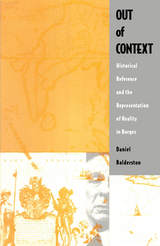
Through a detailed examination of seven stories, Daniel Balderston shows how Borges's historical and political references, so often misread as part of a literary game, actually open up a much more complex reality than the one made explicit to the reader. Working in tension with the fantastic aspects of Borges' work, these precise references to realities outside the text illuminate relations between literature and history as well as the author's particular understanding of both. In Borges's perspective as it is revealed here, history emerges as an "other" only partially recoverable in narrative form. From what can be recovered, Balderston is able to clarify Borges's position on historical episodes and trends such as colonialism, the Peronist movement, "Western culture," militarism, and the Spanish invasion of the Americas.
Informed by a wide reading of history, a sympathetic use of critical theory, and a deep understanding of Borges's work, this iconoclastic study provides a radical new approach to one of the most celebrated and—until now—hermetic authors of our time.
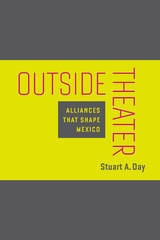
Taking a cue from influential French philosopher Jacques Rancière, who in The Emancipated Spectator rejects the idea of the passive, ignorant, duped spectators in need of instruction to become active, Stuart A. Day’s goal in Outside Theater is to highlight written words and performances that exemplify effective strategies, past and present, to reveal and promote civic engagement, to provoke disruptions, or to highlight fissures—and opportunities—in oppressive social structures.
Through the study of one or two primary models per chapter, as well as multiple examples in the introduction and conclusion, Day presents Mexican plays from 1905 to 2015, including the 2010 Mexico City performance of Zoot Suit by Chicano playwright Luis Valdez. Using these plays, Day explores the concept of “outside theater,” where people or groups translate the tools of the theatrical trade to a different stage, outside the walls of the theater, and play the part of fictional or real life Celestinas—matchmakers who unite seemingly disparate entities to promote social awareness and social action by working the borders between life and art.
Each work in this innovative analysis reveals productive social connections that, with the help of crucial artistic alliances, contradict the perception that art is somehow secondary to or disconnected from the public sphere of influence and the struggles of everyday life. With this book, Day shows that Mexican theater can and does bolster civil society and thus the country’s fragile democracy.
READERS
Browse our collection.
PUBLISHERS
See BiblioVault's publisher services.
STUDENT SERVICES
Files for college accessibility offices.
UChicago Accessibility Resources
home | accessibility | search | about | contact us
BiblioVault ® 2001 - 2024
The University of Chicago Press









